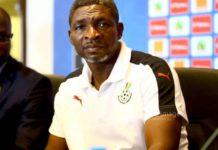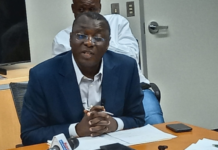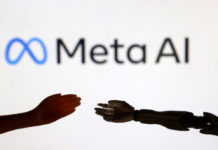From now, to the next elections in the year 2020, the following screaming headlines would be a constant feature in the Ghanaian news media – “3 former government appointees cited in $4m ‘chop, chop’, “CEO busted in $1.2m bribery scandal” etc.
It is the season of exposures. Regime changed hands about 12 months ago. The political cover enjoyed by actors in the previous administration members has been removed. Their “evil deeds” are being investigated. Some of them will pay decision makers in the current administration to give them cover; while some will buy their freedom with their stolen wealth. The “smart ones” who contributed cash to the new administration’s success in the elections will sing “one good turn ……….” for protection.
While the corruption drama unfolds, some actors in the new administration, with the “create loot and share” mind-set will be busy looting as if their counterparts in the previous administration have not been cited for same crimes. And they will do so with impunity because their party is in power. They will be covered by the mighty wings of the executive and party until the next regime change. That is the spectre of politics, power and corruption in Ghana.
Defective Governance:
Today, the debate over corruption in Ghana, as a perception or reality, has ceased. The denials are over. Corruption is real and the levels continue to rise at alarming proportions as those who get the mandate to govern have by omission or commission, nurtured a defective governance system that allows them to steal public funds with impunity; always with political cover.
So called fight against corruption by successive administrations, including the current one, has been an exercise in futility and will remain so, if we remain focused on the symptoms and not the root causes; selective targeting of individuals and political equalisation that reduces the evils of corruption to which administration of the two parties (NDC and NPP) is more corrupt. Talk of stopping corruption in Ghana now, sounds like stopping the waves with your bare hands.
Reforms:
Wherever there is absolute control of power with excessive discretion, without accountability, corruption thrives and that typifies our governance system; a case of “absolute power corrupts absolutely”. With such a vulnerable governance system, it is no surprise that the 23 laws on our statute books and a state-sponsored strategic action plan, aimed at fighting corruption have not scratched the surface of the canker let alone eliminate it.
Chapter 13 of the 1992 Constitution, deals with finance. It grants Parliament extensive powers in the financial management of the country. For instance, it is only Parliament that grants approval for the withdrawal of funds from the Consolidated Fund to meet the expenditures of government through the passage of the Appropriations Act (Article 178).
After authorizing the withdrawal of monies from the Consolidated Fund, Parliament is supposed to exercises control over the expenditure of such monies through its Public Accounts Committee (PAC). While the PAC has been consistent in observing what has unfortunately become an annual ritual of inviting public officials with questions to answer, to appear before it, I am concerned that little or nothing happens after the rituals.
MPs on the other hand, have individually and collectively explained this away, in the fact that they do not have prosecutorial powers and should not contemplate having it as it would offend the principles of separation of powers. If they are right, how do we reconcile the roles of MPs who also serve as ministers of state? What about the Attorney General who doubles as the Executive’s Minister of Justice? And the MPs who are Chairmen and members of the boards of State Enterprises whose accounts they must oversee to check corruption?
Article 187(6) provides that – “parliament shall debate the report of the Auditor-General and appoint where necessary, in the public interest, a committee to deal with any matters arising from it” The construction I put on this provision is that, this Committee, is imbued with the capacity to see to it that all matters arising from the PAC are dealt with to their logical conclusions, including sponsoring and or facilitating prosecutions to retrieve misappropriated funds.
The non-existence and or inaction of this Committee where they exist, in my view are responsible for the widespread public corruption with impunity in Ghana. I do not see any limitations that can be put in the way of this Committee should it move to deal with any public interest matters arising from the recommendations of the PAC that seeks to fight corruption.
On the contrary, I am convinced that the Audit Report Implementation Committees (ARICs) that are supposed to be set up by the various Ministries, Departments and Agencies (MDAs) to implement PAC recommendations are bureaucratic layers deliberately put in the scheme of things to let MDAs get away with the “murder” they so regularly commit against the state.
Solutions:
“We cannot solve our problems with the same level of thinking that created them” — Albert Einstein. I am convinced without a shadow of doubt that, the high cost of contesting in elections in Ghana, is the main cause of public sector corruption in Ghana. Who knows how NPP and NDC come by money to contest for elections and how those monies are paid back?
Source: today







![Ghana discover WAFU Zone B U17 Championship group [Full Group]](https://www.adomonline.com/wp-content/uploads/2024/04/WhatsApp-Image-2023-04-14-at-10.39.33-AM-218x150.jpeg)